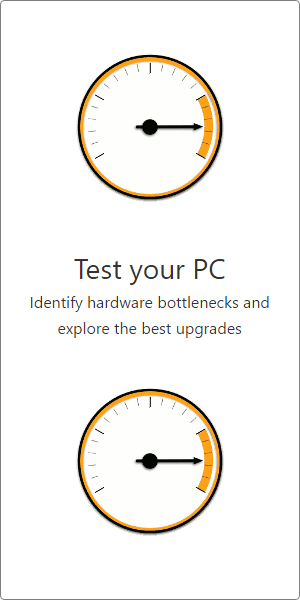Effective Speed
+19%
Poor: 93%
Great: 112%
SPEED RANK: 60th / 713
Poor: 109%
Great: 133%
SPEED RANK: 41st / 713
| Effective 3D Speed
Effective 3D Gaming GPU Speed |
104 % | 124 % | Faster effective speed. |
Average Score
+25%
Overclocked Score
+22%
Game FPS
+2%
 CSGO CSGO
Avg. Fps @ 1080p on Max |
235 Fps | 247 Fps | +5% | |||
 Fortnite Fortnite
Avg. Fps @ 1080p on Max |
147 Fps | 148 Fps | +1% | |||
 PUBG PUBG
Avg. Fps @ 1080p on Max |
104 Fps | +2% | 102 Fps | |||
 GTAV GTAV
Avg. Fps @ 1080p on Max |
101 Fps | 107 Fps | Slightly Better GTAV Fps. |
|||
 LoL LoL
Avg. Fps @ 1080p on Max |
237 Fps | +1% | 235 Fps | |||
 Overwatch Overwatch
Avg. Fps @ 1080p on Max |
124 Fps | 128 Fps | +3% | |||
 BF1 BF1
Avg. Fps @ 1080p on Max |
115 Fps | 125 Fps | Slightly Better BF1 Fps. |
|||
 The Witcher 3: Wild Hunt The Witcher 3: Wild Hunt
Avg. Fps @ 1080p on Max |
106 Fps | 115 Fps | Slightly Better The Witcher 3: Wild Hunt Fps. |
|||
 Minecraft Minecraft
Avg. Fps @ 1080p on Max |
281 Fps | Better Minecraft Fps. |
250 Fps | |||
 DOTA 2 DOTA 2
Avg. Fps @ 1080p on Max |
176 Fps | 181 Fps | +3% | |||
 WoW WoW
Avg. Fps @ 1080p on Max |
102 Fps | 117 Fps | Better WoW Fps. |
|||
 WoT WoT
Avg. Fps @ 1080p on Max |
164 Fps | Slightly Better WoT Fps. |
151 Fps |
Value & Sentiment
+3%
Nice To Haves
+17%
Conclusion
Average Bench 104%
Average Bench 124%
User Builds
478,117
840,268
Systems with these GPUs
Top Builds that include these GPUs


